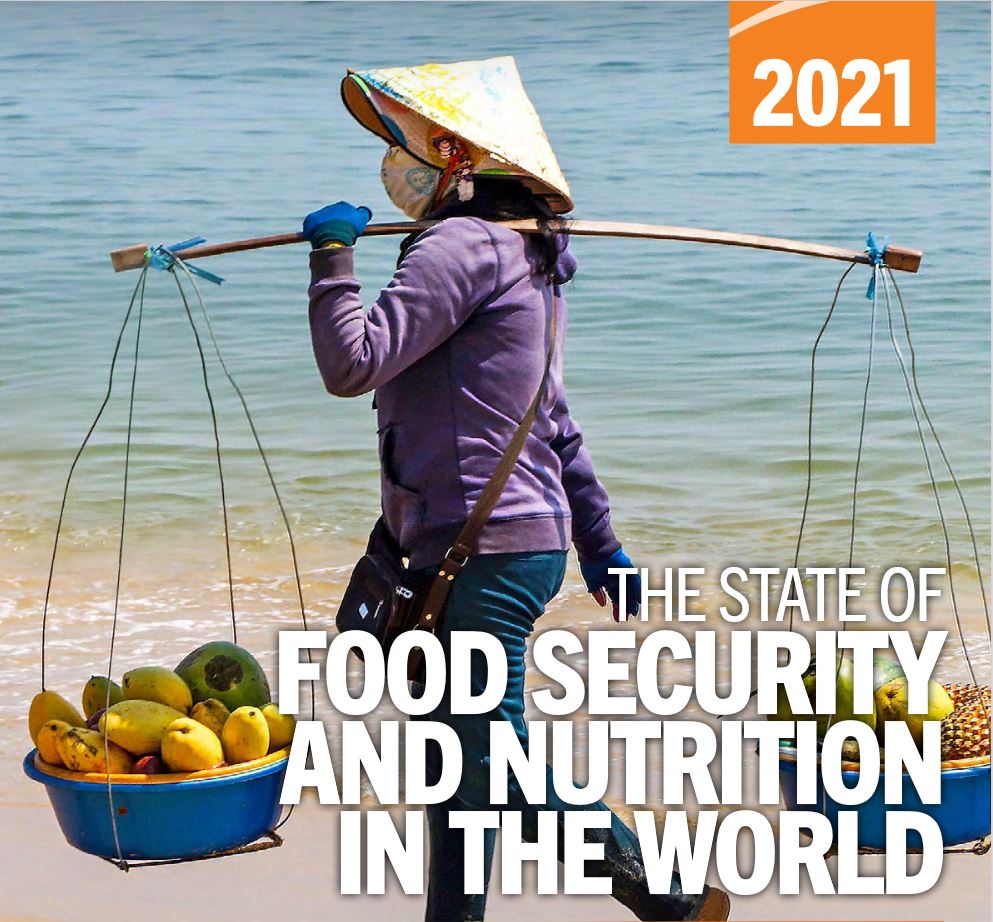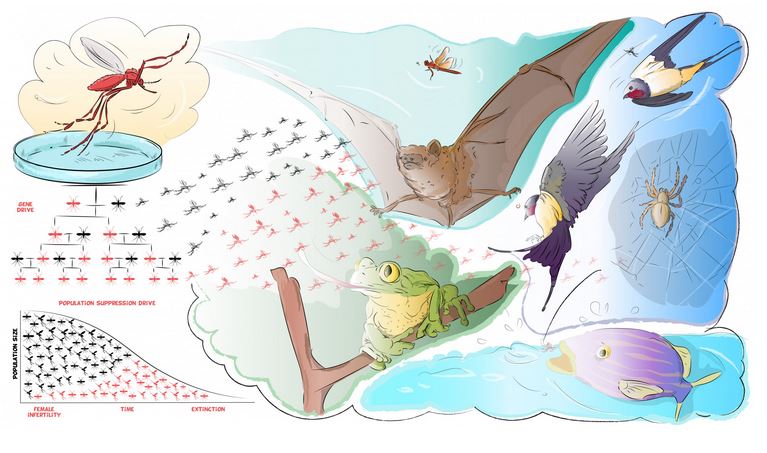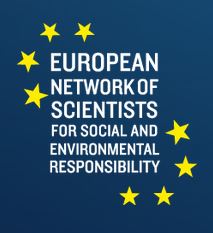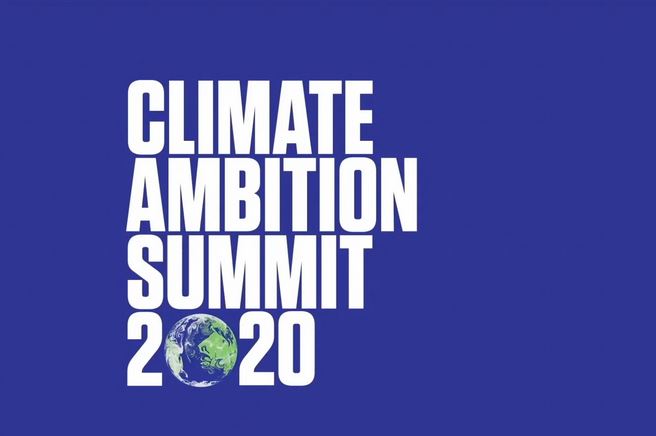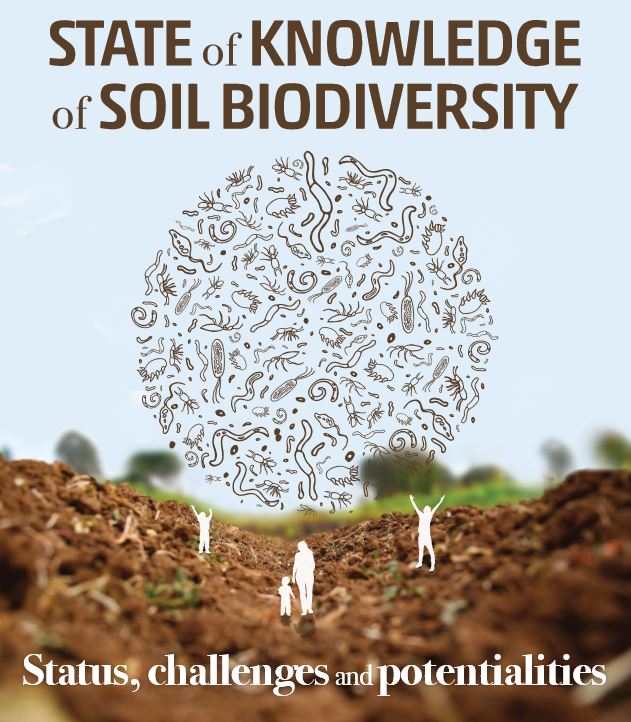News
The key towards an ecologically sound and just transition in agricultural and food systems
The debate on whether to include text on agroecological approaches and/or principles in Target 10 of the post-2020 Global Biodiversity Framework (GBF) is underway, while reference to this remains bracketed. This is because some Parties are blocking progress, by proposing opposing texts that entrench industrial agriculture such as ‘sustainable intensification’ and ‘agricultural biotechnology.’ The battle lines have clearly been drawn as we enter the COP. There has been some positive progress in reference being made to the United Nations Declaration on the Rights of Peasants and Other People Working in Rural Areas (UNDROP), which sets out a bundle of resource rights and recognises the historical and continuous role played by the world’s smallholder farmers, pastoralists, and fishing communities in the conservation and sustainable use of agricultural biodiversity, the basis of our food, and even more essential in these changing ecological and climatic conditions. However, this also remains in brackets and has been relegated to an already controversial Bbis section, which appears to be a legally feeble repository for human rights safeguards. This is a far cry from the much needed recognition of the rights of smallholder food producers, their knowledge and seed systems, and their right to continue their traditional practices related to their seed and food systems in Target 10 itself, at the very least. Further to this, a lack of specific reference to agricultural biodiversity within the GBF will signify a huge failure of the CBD. The rights of smallholder farmers to seed and the maintenance and development of agricultural biodiversity are cornerstones of agroecology and a just transition away from carbon-based, corporate-controlled, and extractive industrial agriculture and food systems.
To read more, Please click here
_________________________________________________________________________________________________________________________
Pushing the Planet Past a Point of No Return
The Sixth Assessment Report released by Intergovernmental Panel on Climate Change (IPCC) on climate change impact declared the severe negative impact of climate change on the planet. The report explains how climate change is already causing severe and permanent damage to not only the natural system but also human beings. Moreover, exceeding 1.5°C of global warming will cause harsh damage to the planet, including ecological systems. This threat could be irreversible that even a future recovery could be impossible. This risk, explores the report, comes not only from the impact of climate change but also from the human response to it.
The world started being affected by the negative impacts of climate change. Moreover, difficulties will extremely arise when the temperature rise exceeds 1.5°C resulting in irreversible damage to the earth. Therefore, an immediate and deep emissions cut is urgently required. Besides, a near-term action for a more sustainable lifestyle, food systems, and agricultural production is more needed than ever.
Read the full analysis: Beyond the Limits: New IPCC Working Group II Report Highlights How Gambling on Overshoot is Pushing the Planet Past a Point of No Return
_________________________________________________________________________________________________________________________
Announcement:
Jubiläumsveranstaltung zu 40 Jahren ökologischer Landwirtschaft an der Uni Kassel in Witzenhausen „Aus vitalen Wurzeln Zukunft ökologisch zu gestalten“
Eröffnung (Prof. Dr. Angelika Ploeger)
https://www.youtube.com/watch?v=wl-ZLkn4J4Y
Eröffnung der Jubiläumsveranstaltung "Aus vitalen Wurzeln Zukunft ökologisch gestalten" durch die Vorsitzende des Vereins (Prof. Dr. Angelika Ploeger). Universität Kassel, Witzenhausen FB 11 - Ökologische Agrarwissenschaften.
Priska Hinz - Hessische Umweltministerin
Prof. Dr. Hardy Vogtmann
Prof. Dr. Jürgen Heß
Prof. Dr. Peter von Fragstein
https://www.youtube.com/watch?v=zdIXCyDjaac
Prof. Dr. Peter von Fragstein: Das Witzenhäuser Studienmodell - von ökologisch zu Organic
Prof. Dr. Miriam Athmann
https://www.youtube.com/watch?v=6jVTBWVM5N4
Bernward Geier im Gespräch mit Prof. Dr. Miriam Athmann
Bernward Geier
https://www.youtube.com/watch?v=srcchrqJUVs
Welche Impulse gingen von Witzenhausen aus?
Bernward Geier: Witzenhausen ein Epizentrum des Biologischen Landbaus mit weltweitem
Hans Jürgen Müller (MdL)
https://www.youtube.com/watch?v=UJHIntcXjbs
Hans Jürgen Müller (MdL): Ökologische Agrarwissenscahften in Witzenhausen - Keimzelle für den Ökolandbau in unserer Region.
Ralf Gottschall
https://www.youtube.com/watch?v=1-nhM6PAmsY
Ralf Gottschall: Lösung-Zeit?/! Vom langen Weg der Biogutkomposte aus dem ökologischen Landbau in den ökologischen Landbau.
Peter Röhrig
https://www.youtube.com/watch?v=ERXaDB84log
Peter Röhrig: Die Entwicklung vom ökologischen Landbau zum BÖLW
Fortsetzung folgt......
_________________________________________________________________________________________________________________________
The impact of COVID-19 on global food system. Fundamental Changes Needed at UN Summit to Tackle Global Food Insecurity

(A market vendor sells produce at Victoria Market in Port Victoria, Seychelles. Credit: UN Women/Ryan Brown)
COVID-19 has a tremendous impact on food systems globally that lead to serious risk of food insecurity. Rich and poor countries have been experiencing the consequences of the political failures in food systems under the COVID circumstances. However, the poorest countries are the ones who is paying the greatest price.
Children around the world are facing serious problems related not only to the shameful undernourishment and hunger but also obesity that grow with children and put them under the stress of diabetes, heart disease and some cancers etc.
Forty one thousand people have taken part in the United Nations (UN) Food Systems Summit that took place on 23 September 2021 to develop equitable, healthy and sustainable responses under the motto “no one is left behind” as we “build back better” from COVID-19.
To read more about the outcomes of the summit, Please click here:
http://www.ipsnews.net/2021/09/fundamental-changes-needed-un-summit-tackle-global-food-insecurity/_________________________________________________________________________________________________________________________
FAO report on convert food systems towards more food security, improved nutrition and affordable healthy diets for all people.
Release date: 2021
By FAO, IFAD, UNICEF, WFP and WHO / https://www.fao.org/documents/card/en/c/cb4474en
In recent years, huge efforts have been spent towards reducing and ending the issues of world hunger and malnutrition in all its forms by 2030. However, under the COVID-19 pandemic, the challenges have grown
This report presents the first global assessment of food insecurity and malnutrition for 2020. Moreover, it suggests possible indications of how the issue of global hunger might look like by 2030 in a scenario further complicated by the enduring effects of the COVID-19 pandemic.
The report offers estimation of the cost and affordability of healthy diets, which provide an important link between the food security and nutrition indicators and the analysis of their trends. Altogether, the report highlights the need for a deeper reflection on how to better address the global food security and nutrition situation.
Please click here to read the full report: https://www.fao.org/3/cb4474en/cb4474en.pdf
More information: https://www.fao.org/documents/card/en/c/cb4474en
_________________________________________________________________________________________________________________________
Launch of IPBES-IPCC Co-Sponsored Workshop Report on Biodiversity and Climate Change
Release date: Thursday, 10 June 2021
By https://www.ipbes.net/events/

In December 2020, 50 of the world’s leading biodiversity and climate experts, selected by a 12-person Scientific Steering Committee assembled by IPBES and IPCC, participated in a four-day virtual workshop to examine the synergies and trade-offs between biodiversity protection and climate change mitigation and adaptation. This represents the first-ever collaboration between the two intergovernmental science-policy bodies. The IPBES-IPCC co-sponsored workshop report on biodiversity and climate change, available below, was launched on 10 June 2021 at a virtual media conference. You will also find below the media release for the 10 June 2021 launch event.
Participants also produced an associated Scientific Outcome, consisting of seven scientific sections, a list of about 1,500 literature references, a glossary, and appendices, which is also posted below.
Please click here to read the full report: https://www.ipbes.net/sites/default/files/2021-06/20210606%20Media%20Release%20EMBARGO%203pm%20CEST%2010%20June.pdf
More information: https://www.ipbes.net/events/launch-ipbes-ipcc-co-sponsored-workshop-report-biodiversity-and-climate-change
_________________________________________________________________________________________________________________________
European Parliament calls for ban on gene drive technology
Precaution prevailsin its report on the EU Biodiversity Strategy for 2030
By https://www.stop-genedrives.eu
Release date: 9. Juni 2021
Precaution prevails in its report on the EU Biodiversity Strategy for 2030
9.06.2021, Berlin –The European Parliament yesterday confirmed it‘s precautionary stance towards the use of a new genetic engineering technology called gene drive.[i] In it´s report on the EU’s Biodiversity Strategy for 2030, adopted at the European Parliament’s plenary on 08.06.2021, Parliamentarians demand that „no releases of genetically engineered gene drive organisms should be allowed, including for nature conservation purposes, in line with the precautionary principle.“
Please click hereto read the full report: https://www.stop-genedrives.eu/sgd-2020/wp-content/uploads/2021/06/20210609_Press-release_-European-Parliament-calls-for-ban-on-gene-drive-technology-1.pdf
More information: https://www.stop-genedrives.eu/european-parliament-calls-for-ban-on-gene-drive-technology-2/
___________________________________________________________________________________________________________________
Constitutional complaints against the Federal Climate Change Act partially successful
Press Release No. 31/2021 of 29 April 2021
By www.bundesverfassungsgericht.de
Order of 24 March 2021
1 BvR 2656/18, 1 BvR 96/20, 1 BvR 78/20, 1 BvR 288/20, 1 BvR 96/20, 1 BvR 78/20
In an order published today, the First Senate of the Federal Constitutional Court held that the provisions of the Federal Climate Change Act of 12 December 2019 (Bundes-Klimaschutzgesetz – KSG) governing national climate targets and the annual emission amounts allowed until 2030 are incompatible with fundamental rights insofar as they lack sufficient specifications for further emission reductions from 2031 onwards. In all other respects, the constitutional complaints were rejected.
The Federal Climate Change Act makes it obligatory to reduce greenhouse gas emissions by at least 55% by 2030 relative to 1990 levels and sets out the reduction pathways applicable during this period by means of sectoral annual emission amounts (§ 3(1) and § 4(1) third sentence KSG in conjunction with Annex 2). It cannot be ascertained that the legislator, in introducing these provisions, violated its constitutional duty to protect the complainants from the risks of climate change or failed to satisfy the obligation arising from Article 20a of the Basic Law (Grundgesetz – GG) to take climate action. However, the challenged provisions do violate the freedoms of the complainants, some of whom are still very young. The provisions irreversibly offload major emission reduction burdens onto periods after 2030. The fact that greenhouse gas emissions must be reduced follows from the Basic Law, among other things. The constitutional climate goal arising from Article 20a GG is more closely defined in accordance with the Paris target as being to limit the increase in the global average temperature to well below 2°C and preferably to 1.5°C above pre-industrial levels. For this target to be reached, the reductions still necessary after 2030 will have to be achieved with ever greater speed and urgency. These future obligations to reduce emissions have an impact on practically every type of freedom because virtually all aspects of human life still involve the emission of greenhouse gases and are thus potentially threatened by drastic restrictions after 2030. Therefore, the legislator should have taken precautionary steps to mitigate these major burdens in order to safeguard the freedom guaranteed by fundamental rights. The statutory provisions on adjusting the reduction pathway for greenhouse gas emissions from 2031 onwards are not sufficient to ensure that the necessary transition to climate neutrality is achieved in time. The legislator must enact provisions by 31 December 2022 that specify in greater detail how the reduction targets for greenhouse gas emissions are to be adjusted for periods after 2030.
Please click here to read the full press release: https://www.bundesverfassungsgericht.de/SharedDocs/Pressemitteilungen/EN/2021/bvg21-031.html
More information: www.bundesverfassungsgericht.de
__________________________________________________________________________________________________________________________
A distortion of science and a danger to public and environmental safety
26 April 2021
By Critical Scientists Switzerland and ENSSER
The EASAC-endorsed Leopoldina Statement, demanding that the EU stops regulating 'genome-edited' plants, represents the narrow interests of 'genome editors' but it does not demonstrate the scientific objectivity or balance required, nor does it represent any consensus in the scientific community at large beyond the self-interested advocates. The EASAC-endorsed Leopoldina Statement is biased and does not withstand scientific scrutiny. ENSSER and CSS, in a scientific critique of the Leopoldina Statement, urgently call for stringent regulation of 'genome editing' to protect public and environmental safety. The so-called 'genome editing' techniques, just like the older techniques of genetic modification, give rise to known as well as inadvertently generated risks. Their potential for dual use, abuse and accidental misuse is considerably higher than that of the older techniques and warrants even stricter surveillance. So does their application as gene drives.
Please click here to read the full press release: https://ensser.org/press_release/press-release-a-distortion-of-science-and-a-danger-to-public-and-environmental-safety/
More information: https://ensser.org/
__________________________________________________________________________________________________________________________
Beyond the gap: Placing biodiversity finance in the global economy
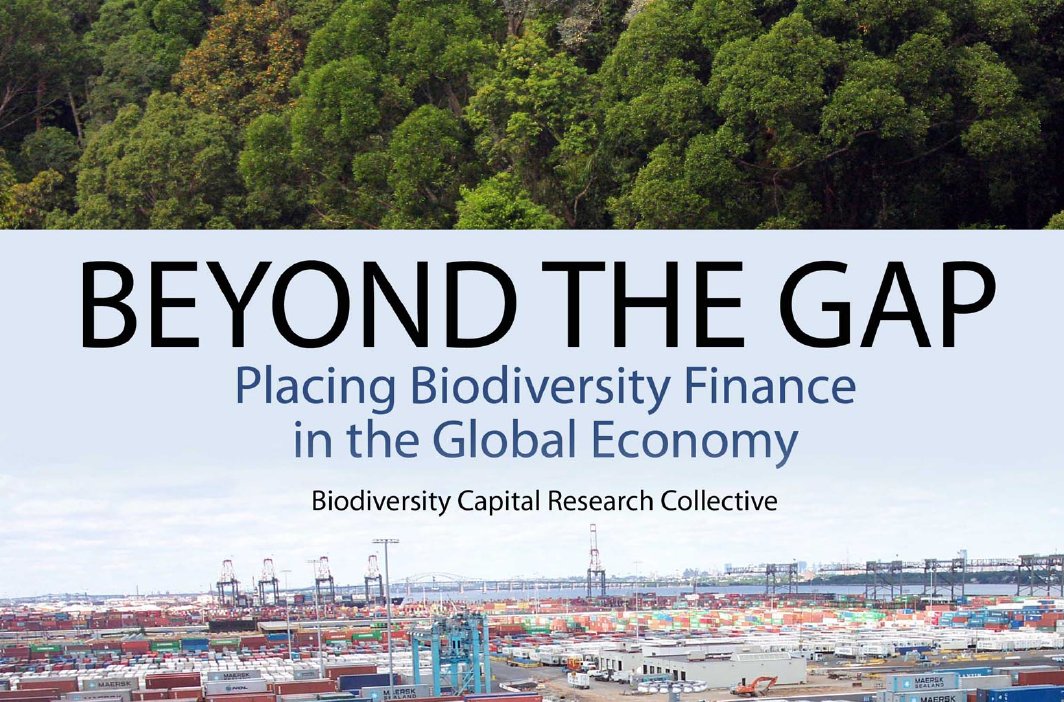
A new interesting research report, ‘Beyond the gap: Placing biodiversity finance in the global economy’, published by the Third World Network and the University of British Columbia. The research demonstrates why structural patterns of trade, investment and financial regulation (or lack thereof), global economic pressures that push biodiverse countries into debt, and inequality across racialised, gender, class and colonial lines, must be addressed if we are serious about addressing biodiversity loss.
The Briefing Paper is currently available in English and Spanish.
For more information, please visit: https://twn.my/title2/finance/2021/fi210504.htm
To read the new research report: https://twn.my/title2/books/Beyond%20the%20Gap/BeyondTheGap%20complete%20report.pdf
__________________________________________________________________________________________________________________________
"Territories of Life: 2021 Report"
Launch event on 20 May

The ICCA Consortium is pleased to invite you to the launch of their 2021 report on territories of life - a multimedia local-to-global analysis of territories and areas conserved by Indigenous peoples and local communities and their diverse contributions to a healthy planet. A summary for policymakers includes recommendations for the negotiation and implementation of the post-2020 global biodiversity framework.
The event will be held online on 20 May 2021 from 13:00-14:00 UTC. It will include simultaneous interpretation in English, French, and Spanish.
Please visit the ICCA Consortium website for registration and further information:
https://iccaconsortium-org.zoom.us/meeting/register/tJErdOiorTwtGdfnZlQTUqfrMuNZxA-gWgwn
__________________________________________________________________________________________________________________________
TP Organics’ Science Day 'Innovating for organic food processing
Recently, the European Commission started to regulate organic processing methods, therefore, operators need to better understand the background and concepts to qualify a processing technology as compatible with the organic regulation.
TP Organics’ Science Day will take place on 19 February from 11:00-12:45 at BIOFACH 2021 as part of the Congress 'Shaping. Transformation. Stronger. Together.'
Science Day invites organic operator and/or interested stakeholder together with researchers and European Commission representatives to take part in an interactive session. Participants will learn more about current research on organic processing as well as funding opportunities for the organic sector.
Different programs will be presented in this session such as the Horizon Europe, the EU’s new research programme starting this year, the new European Partnership for Safe and Sustainable Food Systems (expected start in 2023).
For more information please visit:
https://tporganics.eu/save-the-date-tp-organics-science-day-at-biofach-2021/
__________________________________________________________________________________________________________________________
BIOFACH - World´s Leading Trade Fair for Organic Food
The trade fair duo BIOFACH and VIVANESS will take place in 2021 from 17 - 19 February 2021 completely digital.
Organic is more being more and more related to the aspect of quality and conscious attitude towards nature’s resources. BIOFACH in the world leading event focusing on organic foods. It takes place at the Exhibition Centre Nuremberg where people from all around the world gather since 1990 to share their passionate interest in organic food, get to know each other and exchange view.
BIOFACH is the perfect opportunity for meeting professionals and organic producers from the organic market and be inspired by the sector’s latest trends.
For more information, please visit: https://www.biofach.de/en
__________________________________________________________________________________________________________________________
European parliament greenwashes farming subsidies and recovery funds
The European Parliament has announced new support for EU farm that will last for the next two years. The Parliament also agreed on how the recovery funds will be spent in the sector. However, this news is considered to have a negative impact on agricultural resilience and the environment. The European Parliament discussed a two-year transition deal extending current farm subsidy rules and focused on how to distribute the €8 billion agriculture share of the EU coronavirus recovery package. Unfortunately, the politicians chose on the greenwashing and status quo instead of the resilience and environmental sustainability that is much-needed.
For more information please visit:
__________________________________________________________________________________________________________________________
Our solutions are in nature
The International Day for Biological Diversity
#OurNatureIsNotYourSolution
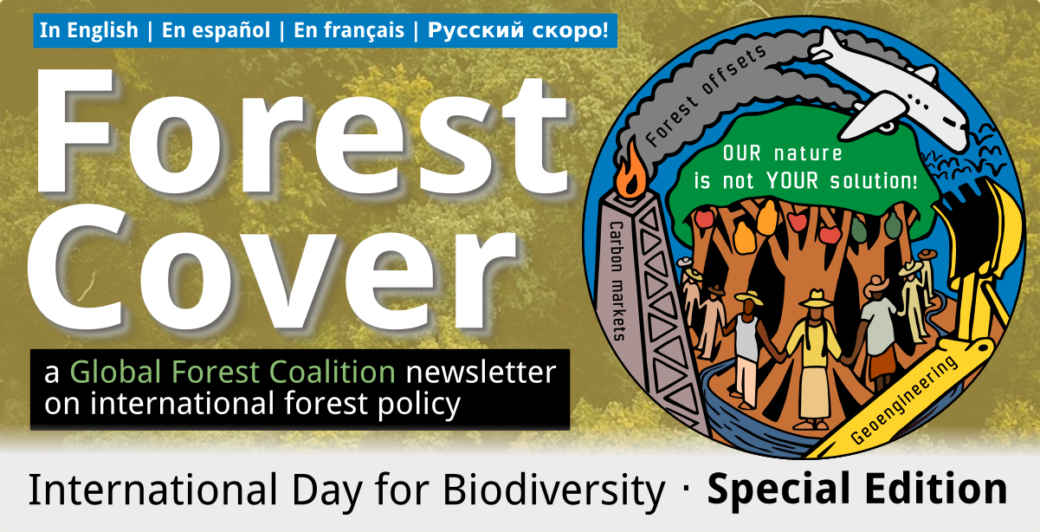
In May 22nd the International Day for Biological Diversity took place with the theme “Our solutions are in nature” that was chosen by the United Nations Convention on Biological Diversity (CBD).
The nature-based solutions (NBS) is increasingly becoming a strategy for reducing climate change and biodiversity loss. Unfortunately, many companies and governments have twisted the concept of NBS in order to falsely re-brand highly damaging practices as “green”.
Therefore, the campaign #OurNatureIsNotYourSolution is launching a special edition Forest Cover magazine. Forest Cover highlights how the publicity of NBS is being exploited to cover actions such as pushing forest offsets, monoculture tree plantations and other false solutions. It also examines some real solutions that the members in Colombia, Ghana, Nepal, Panama, Paraguay and Sri Lanka are engaged in.
For more information, please visit:
https://globalforestcoalition.org/forest-cover-61/
__________________________________________________________________________________________________________________________
The first online edition of the Organic Innovation Days 2020 was a success
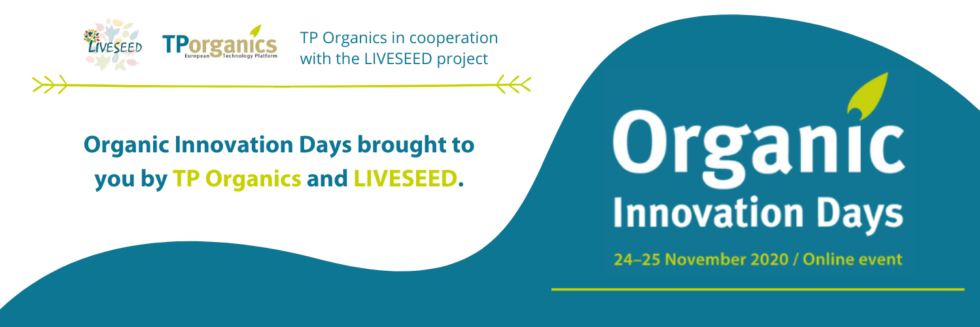
Between 24-25 November 2020 the the Organic Innovation Days 2020 took place online via the online event platform SpotMe for the first time ever. The event was well attended by almost 200 participants.
The Organic Innovation Days 2020 is the only EU event on research & innovation for organic. It is an annual public event organized by TP Organics.
The main aim this year was to boost organic seed and plant breeding across Europe. This year edition, TP Organics partnered with the Horizon 2020 project LIVESEED, coordinated by IFOAM Organics Europe.
Through interactive functionalities such as chats, Q&As and discussion boards, the Organic Innovation Days once again provided a unique opportunity to meet members of TP Organics, to network with EU stakeholders and decision-makers, as well as to discuss and exchange with the LIVESEED project partners.
More information about the meeting under:
https://tporganics.eu/organic-innovation-days/
To read TP Organic Paper:
__________________________________________________________________________________________________________________________
The Climate Ambition Summit 2020 celebrated this year five years of the adoption of the Paris Agreement.
The summit took place with s75 leaders, including 45 relating to new and enhanced Paris Agreement nationally determined contributions (NDCs), 24 net-zero emissions commitments, and 20 new adaptation and resilience plans. New finance-related initiates were made by different countries and financial institutions. For instance, the United Kingdom pledged to double its climate finance contribution to USD 15.5 billion over the next five years. Additionally, the European Investment Bank announced a goal of 50% of investments that aim to support the climate and environment sectors by 2025.
Moreover, China has committed to lowering its carbon dioxide emissions per unit of GDP by over 65% from 2005 levels by 2030 and the EU has stated commitments to reduce GHG emissions by at least 55% from 1990 levels by 2030. Numerous countries announced or affirmed their commitment to reaching net-zero carbon dioxide or GHG emissions by mid-century.
More information bout the outcome of the summit and the words od some leaders can be found in:
Reference:
IISD Reporting service. Climate Ambition Summit 2020. Published in 12 December 2020. Retrieved on 16.12.2020
__________________________________________________________________________________________________________________________
State of knowledge of soil biodiversity - Status, challenges, and potentialities
A new interesting report published by FAO is dealing with very important challenges and global concepts such as biodiversity; soil organisms; ecosystem services; ecosystem conservation; Sustainable Development Goals.
Biodiversity is receiving increasing attention with regards to food security and nutrition. Above-ground biodiversity such as plants and animals is taking higher attention by scientists that biodiversity beneath our feet, soil biodiversity, which drives many processes that produce food or purify soil and water.
This report published by FAO with the collaboration of FAO’s Global Soil Partnership and its Intergovernmental Technical Panel on Soils, the Convention on Biological Diversity, the Global Soil Biodiversity Initiative, and the European Commission. It highlights the importance of soil biodiversity, the threats to it, and the solutions that soil biodiversity can provide to problems in different fields. Besides, it explores the valuable contribution to raising awareness of the importance of soil biodiversity and highlighting its role in finding solutions to today's global threats.
The full report is available:
http://www.fao.org/3/cb1928en/CB1928EN.pdf
__________________________________________________________________________________________________________________________
Keep soil alive, protect soil biodiversity
WORLD SOIL DAY 2020
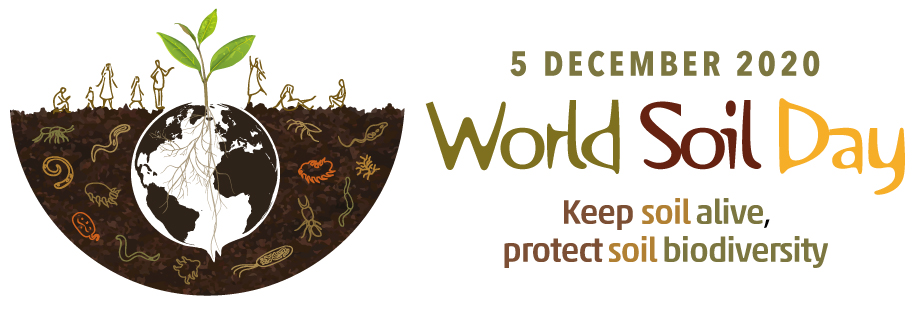
World Soil Day 2020 (#WorldSoilDay) and its campaign "Keep soil alive, Protect soil biodiversity" aims to raise awareness of the importance of maintaining healthy ecosystems and human well-being by addressing the growing challenges in soil management, fighting soil biodiversity loss, increasing soil awareness and encouraging governments, organizations, communities and individuals around the world to commit to proactively improving soil health.
World Soil Day (WSD), 5 December is the United Nations Observance that celebrates healthy soils for a food-secure future. This years' campaign "Keep soil alive, Protect soil biodiversity" urges us to focus our attention on the workers belowground - from tiny bacteria to agile millipedes and slimy earthworms - all of which contribute to processes that are indispensable to life on Earth.
These days biodiversity loss is a worry – and soil is also affected. Soil is home to more than 1/4 of our planet's biodiversity. Yet, we only know 1% of this universe. There are more living creatures in a single teaspoon of healthy soil than there are people on Earth. Soil organisms are responsible for many critical ecosystem processes, on which humans depend: from supporting plant growth, to storing carbon and being a vast reservoir for pharmaceuticals. But soil biodiversity is under pressure! Unsustainable soil management affects life belowground. Take action to protect soil biodiversity by digging in with us!
Key messages
- Soil is a living resource, home to more than one quarter (25%) of our planet’s biodiversity.
- Up to 90% of living organisms live or spent part of their lifecycle in soils, yet we know only 1% of this hidden universe.
- Soil organisms work 365/24/7 in a coordinated effort to sustain life on Earth.
- Soil biodiversity is an essential component of soil health. Healthy soils produces more nutritious and safer food. 95% of our food comes from soils.
- Soils organisms help soils store carbon and reduce GHG emissions.
- Soil biodiversity contributes to the remediation of soil pollution by breaking down contaminants.
- Soils are vast, vital pharmacies. Did you know that almost all of the antibiotics that we take to help us fight infections were made using soil micro-organisms?
Hashtags #SoilBiodiversity #WorldSoilDay
http://www.fao.org/world-soil-day/en/
__________________________________________________________________________________________________________________________
The European Commission has today launched a public consultation on its future Action Plan on Organic Farming.
This sector will play an important role in achieving the European Green Deal ambition, and reaching the objectives set out in the Farm to Fork and Biodiversity Strategies. It is a priority for the Commission to ensure that the organic farming sector has the right tools in place as well as a well-functioning and consensual legal framework which is key to achieving the objective of 25% of agricultural land dedicated to organic farming. While the new organic regulation provides a solid basis, secondary legislation still to be adopted needs to be equally resilient. At the request of Member States, the European Parliament, third countries, and other stakeholders, the Commission has therefore proposed today as well to postpone the entry into force of the new organic legislation by one year, from 1 January 2021 to 1 January 2022.
Agriculture and rural development Commissioner Janusz Wojciechowski said: “The Farm to Fork and Biodiversity strategies set ambitious targets for the agricultural sector to ensure it is Green Deal-ready. Organic farming will be a key ally in the transition that we are leading towards a more sustainable food system and a better protection of our biodiversity. The Commission will support the organic sector towards the achievement of the 25% target of agricultural land under organic farming by 2030 with the appropriate policy and legal framework. ”
The future Organic Farming Action Plan, due for adoption early in 2021, will be an important instrument to accompany the future growth of the sector. The Commission's Farm to Fork and Biodiversity Strategies include the target of reaching 25% of agricultural land under organic farming by 2030. To help reach this target, the European Commission is putting in place and making use of key tools:
- An Action Plan for Organic Farming, which will be instrumental in helping boost the sector, both at demand and supply level. It will be organised around three key angles: stimulating demand for organic products while maintaining consumer trust; encouraging the increase of the organic farming area in the EU; and, enhancing the role of organic production in the fight against climate change and biodiversity loss, including in sustainable resource management. The public consultation launched today aims at gathering feedback on the draft plan from citizens, national authorities and relevant stakeholders. The questionnaire will be online for a period of 12 weeks, until 27 November
- The new organic legislation, which will reflect the changing nature of this rapidly growing sector. The new rules are designed to guarantee fair competition for farmers while preventing fraud and maintaining consumer trust. To ensure a smooth transition between the current and future legislation and to allow the industry and Member States to be fully ready to implement the new rules, the Commission has proposed to postpone by one year its entry into force. The postponement was originally requested by Member States, the European Parliament, third countries, and other stakeholders due to the complexity and importance of the secondary legislation under preparation. As a result of the coronavirus crisis, work on the secondary legislation has slowed down. The postponement will allow sufficient time for the necessary extensive consultations and legislative scrutiny.
- The EU agri-food promotion policy, which supports the European agricultural sector by promoting its quality features on the internal market and in third countries. For the year 2021, the Commission plans to allocate a specific budget of €40 million to organic farming under the promotion policy. This budget will co-finance promotion actions and information campaigns on the EU organic sector, raising awareness about its qualities and aiming at stimulating demand.
For further Information: https://ec.europa.eu/commission/presscorner/detail/en/ip_20_1548
__________________________________________________________________________________________________________________________
Have your say……
European Green Deal
If you are interested to get into the discussion more deeply please visit:
https://ec.europa.eu/info/law/better-regulation/have-your-say/initiatives/12555-Organic-farming-action-plan-for-the-development-of-EU-org
__________________________________________________________________________________________________________________________
European Bio- congress
A documentation of the Congress is available
https://www.boelw.de/eoc2020
__________________________________________________________________________________________________________________________
TP Organics: Green Deal Call being published
The European Commission published the Green Deal call as part of the Horizon 2020 Work Programme 2018-2020. Research and innovation projects are to be funded in 8 thematic areas. Area 6 is about the Farm to Fork strategy, Area 7 about the Biodiversity Strategy for 2030.
Area 6 proposals will test, pilot and demonstrate innovative systemic solutions (innovation actions) to one of the following 6 subtopics, corresponding to urgent and pressing food systems’ challenges:
- Achieving climate neutral farms by reducing GHG emissions and by increasing farm-based carbon sequestration and storage
- Achieving climate neutral food businesses by mitigating climate change, reducing energy use and increasing energy efficiency in processing, distribution, conservation and preparation of food
- Reducing the dependence on hazardous pesticides; reducing the losses of nutrients from fertilisers, towards zero pollution of water, soil and air and ultimately fertiliser use
- Reducing the dependence on the use of antimicrobials in animal production and in aquaculture
- Reducing food losses and waste at every stage of the food chain, while also avoiding unsustainable packaging
- Shifting to sustainable healthy diets, accessible to all EU citizens, including the most deprived and vulnerable groups
In addition, proposals for projects in 2 horizontal areas with a longer-term perspective are invited:
- Strengthening our knowledge in support of the European Green Deal
- Empowering citizens for the transition towards a climate neutral, sustainable Europe
Deadline for submissions is January 26, 2021.
You can find more information https://ec.europa.eu/research/participants/data/ref/h2020/wp/2018-2020/main/h2020-wp1820-cc-activities_en.pdf
__________________________________________________________________________________________________________________________
Global Forum for Food and Agriculture
Communiqué 2020
Food for All! Trade for Secure, Diverse, and Sustainable Nutrition.
Currently, more than 820 million people are suffering from hunger, while 2.5 billion are suffering from micronutrient deficiency. Urgent actions must be taken to advance food security and eliminates the root causes of these issues.
The agriculture ministers of 72 nations had a meeting on 18 January 2020 for the 12th Berlin Agriculture Ministers’ Conference on the Global Forum for Food and Agriculture (GFFA). They discussed how to ensure food security for the world’s increasing populations and boost sustainable food systems in order to improve farmers’ lives and human health.
The meeting addressed four main challenges: Fostering trade for global food security, making trade work for agricultural development, making food value chains inclusive, sustainable, and safe, and strengthening fair rules in agricultural trade.
The members stressed that World Trade Organization (WTO) has an important role in achieving the 2030 Agenda for Sustainable Development, including its Sustainable Development Goals, especially Goal 2 “End hunger, achieve food security and improved nutrition and promote sustainable agriculture.”
Source: Federal Ministry of Food and Agriculture. Global Forum for Food and Agriculture Communiqué 2020 Food for All! Trade for Secure, Diverse and Sustainable Nutrition. Berlin (2020)
Retrieved from: https://www.gffa-berlin.de/en/
https://www.gffa-berlin.de/wp-content/uploads/2020/02/GFFA-Communique-2020-EN.pdf
__________________________________________________________________________________________________________________________
The European Green Deal, Our Roadmap For a More Sustainable Economy
The Farm to Fork Strategy
Although COVID-19 was a tough lesson to our mankind, it highlighted the importance of having a strong food system that is able to serve societies and ensure access to affordable food to all citizens equally. It is now more evident that it is not only important to keep ourselves healthy, but rather more important to maintain our planet healthy too. This pandemic is only one of the numerous risks that are threatening our food systems like floods, forest fires, and the appearance of new pests.
The European Green Deal is a set of policies presented by the European Commission that aims to make Europe climate neutral by 2050. It is considered the roadmap that promotes new strategies for a more sustainable economy that improves all societies’ wellbeing in an equal and adequate manner. The Farm to Fork Strategy is the core of the European Green Deal that aims to make food systems fair, healthy, and environmentally-friendly. It recognizes the prominent link between the health of people, societies, and the planet. Besides, it addresses the challenges that are facing the current sustainable food systems. Moreover, The Farm to Fork Strategy works consistently with the Commission’s agenda to achieve the United Nations’ Sustainable Development Goals (SDGs).
Achieving a sustainable food system is getting more and more required globally as it not only brings environmental, health, and social benefits but also ensures faster recovery after a crisis like COVID-19.
Source: European Commission. Communication from the commission to the European parliament, the council, the European economic and social committee, and the committee of the regions. A Farm to Fork Strategy, for a fair, healthy, and environmentally-friendly food system. COM (2020) 381 final, Brussels (2020).
Retrieved from:
https://ec.europa.eu/food/farm2fork_en
______________________________________________________________________________________________________


